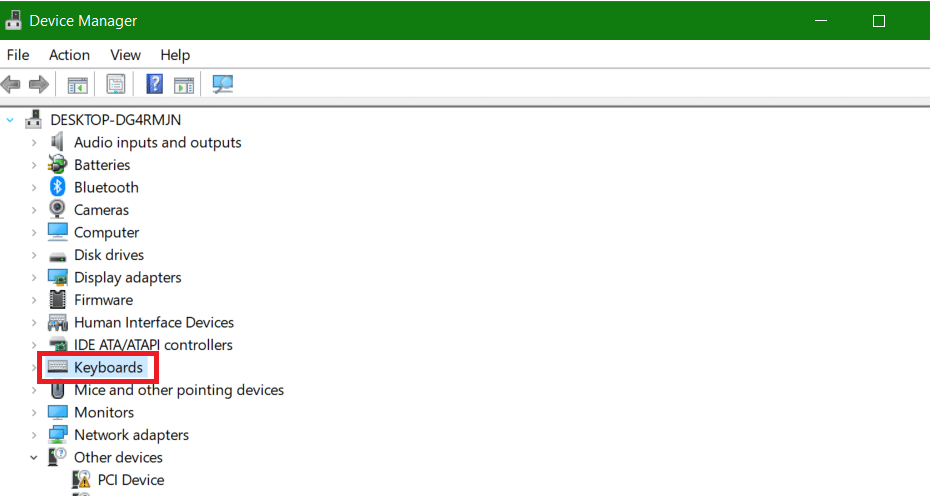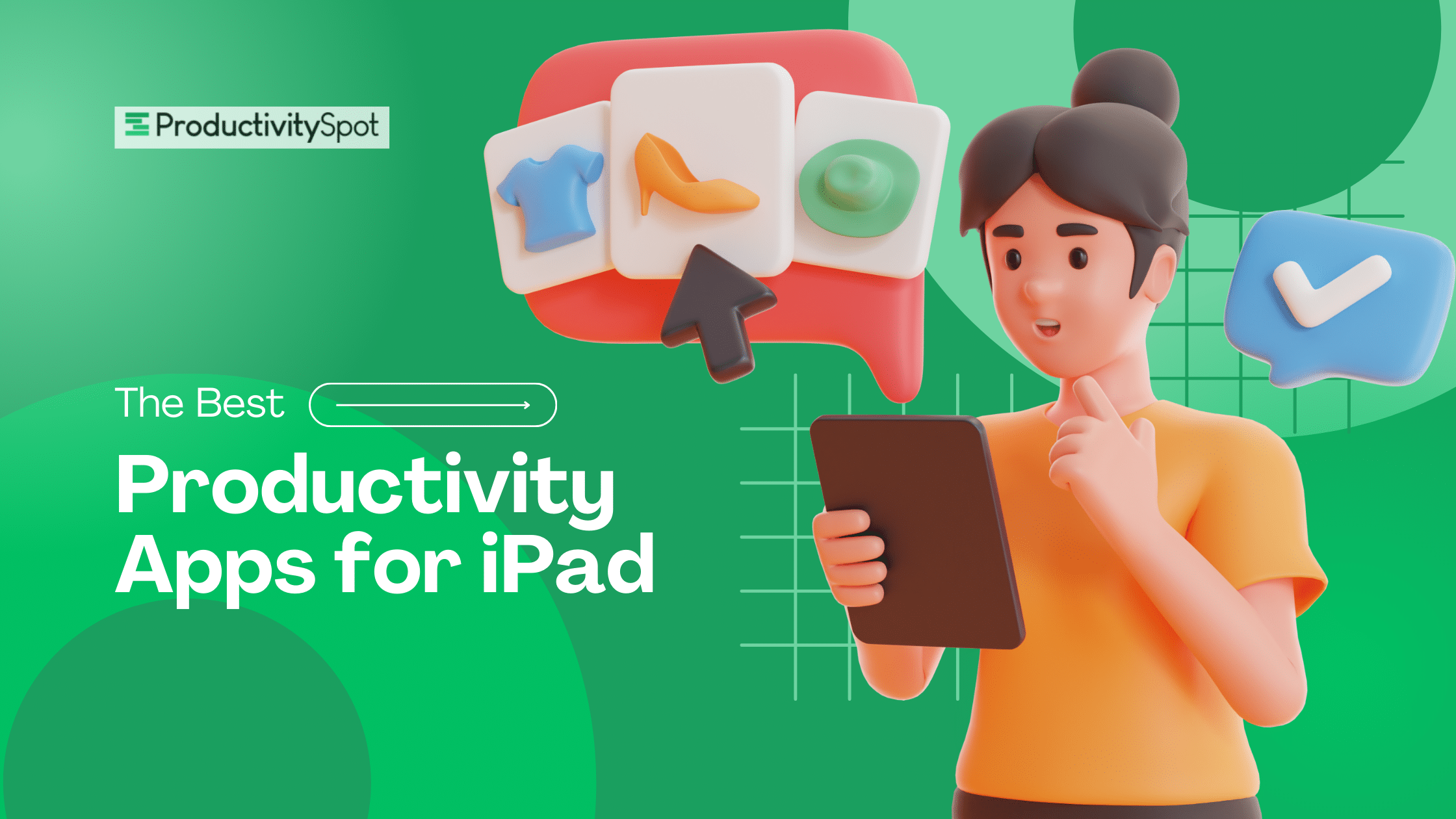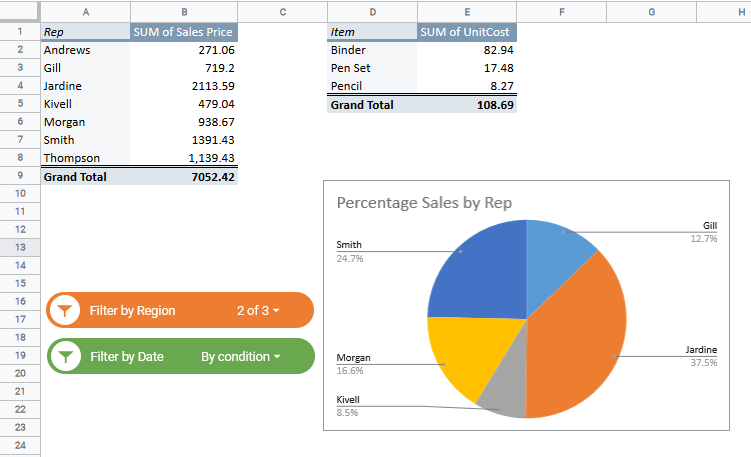While taking down notes has been standard practice since way back, it’s now at an all-time high with the bunch of information that you encounter every day. Fortunately, there are a couple of handy platforms that you can use to ease your note-taking process.
Notion and Evernote are two of the hottest software you can try in this regard. Notion is more of a virtual workspace that not only supports note-taking but also other purposes like task management, collaboration, and more about productivity. Meanwhile, Evernote is a specialized tool that hyper-focuses on the note-taking aspect.
Follow along as we discuss more about Notion vs. Evernote, their key differences, and which one would be a better choice for you, depending on your needs.
This Article Covers:
Notion vs. Evernote Overview
|
Feature |
Notion |
Evernote |
| Ease of use | Feature-rich and offers more than just note-taking but requires time to explore | Straightforward access and simplified usage principles |
| Pricing | Unlimited storage and powerful features are available for free; Paid version starts at $8 per user per month | Basic functions are accessible for free; Pricing for paid plans are currently undisclosed |
| Note-taking | Take notes on any page you create; Accepts varying types of multimedia, including images, videos, and online file embeds | Intuitive note-taking interface that accepts multiple attachments like PDFs, images, and the like; Comes with optical character recognition technology |
| Integrations | Often requires third-party software like Zapier to integrate with other apps | Wide integration support for many productivity apps |
| Templates | Wide collection of free templates; Also allows its users to make and share templates of their own | Templates are available for free, but the creation of custom templates is exclusive to paying users |
| Search | Comes with a basic built-in search feature | Offers advanced searching capabilities with filters and keywords |
What Is Notion?
Launched in 2016, Notion is new in the note-taking game, although it’s primarily marketed as a virtual workspace for individuals and teams. Put simply, it offers other features than just note-taking support, including the creation of wikis and project management.

The great thing about Notion is that it offers numerous tools (that you’d otherwise look for online) in one place. A good example of this is the embedding of spreadsheets into your Notion workspace. This helps reduce the need for you to open multiple pieces of software at once, thereby avoiding confusion and RAM shortage and keeping your process a lot simpler.

One of the latest updates to this platform is Notion AI, which can summarize information into note-form, helping to generate ideas and proofread your work. This feature was made accessible in early 2024 and is available either via the limited free credits from Notion or a paid subscription.

What Is Evernote?
If you’ve ever used tools like the sticky note app on your PC, Google Keep, or something similar, you can think of Evernote as a version that is supercharged with advanced features. Unlike Notion, this platform is highly focused on note-taking — including the features that make the process of taking notes more efficient and intuitive.
Some features it offers are the attachments of audio, scans, images, and even PDF documents together with text. It also supports the formatting and structuring of these texts and attachments. This means you get to keep and organize your files and notes in a single location.

The best thing about Evernote is that it integrates with a wide variety of applications, including Google Calendar, Asana, Trello, and more. While it doesn’t eliminate the need for the usage of other apps as Notion does, it does fit almost seamlessly with mainstream productivity software.
Notion vs. Evernote 2024: What’s the Difference?
Notion and Evernote have a couple of overlapping features that make it hard for users to choose between the two. In this section, we’ll dive into their key differences in terms of intuitiveness, usage costs, note-taking process, and more aspects.
Ease of Use — Evernote Is Simpler to Operate
One of the important aspects you want to consider when choosing a productivity tool is whether you can use the software easily. Especially among beginners, you want something that’s almost a plug-and-play — or in this case, download-and-play — software that actually lets you do your work right away.
Evernote
Between the two apps in question, Evernote is a much simpler place to start with. As it only offers note-taking, all you really need to do is create an account and start using it as your digital notebook. You can just think of Evernote as a computer-based version of your pen and paper.
Notion
Notion, on the other hand, requires you to take a pause and study its features. And while there are numerous hints and tutorials that you can refer to, these resources only fortify the fact that the user wouldn’t immediately know how to set up their workspace. Unlike Evernote’s structured layout, you would have to build your workspace from scratch.

While considerably harder to operate as a beginner, Notion does offer plenty of interesting features that Evernote can’t provide. Since you’re literally starting with a blank page, you get to play the customization game extensively too.
Pricing — Notion Has Better Offers
Note-taking tools can also have advanced features that only become available once you paid for the premium version. Notion and Evernote are pretty similar when it comes to pricing, with their main difference being the number of features that each of them offers.
While it’s a given that Notion would have a more extensive set of features as an online workspace platform, we particularly liked that its free version comes with more favorable attributes than that of Evernote.
- Notion offers unlimited storage, as opposed to Evernote’s 60MB storage cap per month.
- Notion supports the collaboration of up to 10 guests, while the free plan of Evernote doesn’t offer this functionality.
- Notion allows syncing across devices, whereas Evernote only allows usage on up to two devices at a time.
Below is a more detailed view of each tool’s pricing offers.
Evernote
The specific costs of Evernote’s offers vary depending on your location, and the said platform also doesn’t disclose its pricing at the moment. However, it does detail what features and functionalities are included in its plans. Here are they:
|
Plan |
Features |
|
Free |
The free plan supports up to two devices at a time and only enables offline mode on the desktop app. You get to perform advanced searches and encrypt your content. While there are many templates from Evernote, you cannot create custom ones. |
|
Personal |
Evernote allows you to create custom templates under the personal plan, alongside other perks like saving emails to your notes, linking to your files on Google Drive, and integrating with other apps like Slack. This also allows for customization of the Home interface. |
|
Professional |
This plan includes everything under the Personal plan but also comes with the ability to assign tasks to certain collaborators and do more advanced searches with booleans and locations. You also get to export your notebooks in Evernote as PDFs. |
|
Teams |
Including the features of the previously mentioned plans, the Teams plan also offers the creation of central information spaces and viewing of the history of what your users have done in the space. |
Notion
As of writing, Notion offers four available plans to its users: Free, Plus, Business, and Enterprise.
|
Plan |
Features |
|
Free |
The unpaid version lets you sync across your devices, create unlimited pages, and share your workspace with up to 10 guests. It also already allows you to integrate other apps like GitHub and Slack. Notion’s storage limit is also unlimited under its free version. |
|
Plus |
Formerly called Team, this plan costs $8 per user monthly. You get to enjoy unlimited file uploads and blocks, as well as configure the access of users to particular pages under your workspace. It also supports invitations to up to 100 guests. |
|
Business |
If you’re going to use Notion at a relatively larger scale than the previous plans, the Business plan at $15 per user monthly might be a great option. This offers everything in the prior plans but also features better privacy for teams, bulk exports of PDF documents, and invitations to up to 250 guests. |
|
Enterprise |
The pricing for this plan varies depending on the quotation given by Notion to your company. It comes with advanced security options, analytics, and more features related to management. |
Note-taking — Evernote Edges Out Notion
Quite literally, this is the most important aspect you should be on the lookout for when looking for a note-taking tool. By “note-taking” here, we are referring to how easy and intuitive the process is, as well as the functionalities that you can use on the software.
As the older software and the one that really focuses on the note-taking aspect, Evernote outplays Notion by a large margin. Particularly, its web-clipping feature, optical character recognition, and audio notes are really handy when you want to take down important ideas quickly.
Evernote
This platform doesn’t encapsulate the word “notes” into textual content — it supports image captures, documents attachments, audio notes, and even automatic conversion of handwritten notes to digital notes through its OCR technology.
The audio notes are particularly convenient when you’re in a meeting, and multiple people are letting out their thoughts. While you can argue that the native audio recording app on your phone would suffice, Evernote keeps the same functionality in a single place.
Its web clipper is also a handy feature, offering snapshots of web pages that are not awash with ads. The document scanning feature of the tool also allows for easy storage of files that you can access anytime.
Evernote also supports doodling, a feature perfect for those with styluses at hand.

Notion
The “start-from-scratch” principle of Notion makes it both weak and strong when it comes to note-taking. For example, you can just start a new page and type your thoughts away in your Notion workspace. This is akin to grabbing a random piece of paper that you found on your desk to write on.
The downside comes when you want to make your notes more structured. This would require you to undergo the setup process we’ve been talking about earlier, such as adding varying views, tags, and more aspects. It wouldn’t be surprising if you find yourself searching for a database template for Notion.
It’s also worth mentioning that Notion doesn’t support doodle and pen inputs. It’s also incapable of optical character recognition and taking audio notes.
Integrations — Evernote Supports More Apps
If you’re going to use either of the two as a part of your working ecosystem, you’d likely pay attention to the apps that they can integrate with. Evernote plays better in this regard, especially with the larger number of common productivity apps that it can connect to compared with Notion.
Evernote
What we really like about Evernote is that it supports most productivity tools available for integration. For example, you can connect your account to platforms like Google Drive, Slack, Outlook, and Gmail.
While Notion also connects with Slack, it currently doesn’t support integration with Gmail, which is a pity given that it’s one of the most commonly used in professional contexts.
Notion
Notion does support integrations — the issue is that it only offers connections to a limited number of apps. Another caveat is that it also cannot integrate with common platforms like Outlook and Zoom. This makes it quite unsuitable for you if you’re one to use multiple apps in your work routine.
There are certain workarounds that you can try though to connect these pieces of software. For example, you can try using third-party automation and integration tools like Automate and Zapier. Unless you’re willing to take the time to set the connection up, Notion isn’t a favorable option when it comes to integration.
Templates — Notion Offers More Templates & Customization
Setting up your note-taking tool for your workflow varies depending on the app, and one way to start easily is by using a template. Notion performs well in this regard, especially with the large collection of templates you can choose from and the users’ ability to actually create new templates based on their needs and preferences.

Evernote
Users can only create customized templates by subscribing to any of the paid plans on Evernote. However, free users can download templates from Evernote’s website.
Notion
Notion’s support for custom template creation traces its roots to the fact that users start with a blank workspace. They have the freedom to add the blocks that they want and omit everything else that is of no use to them. While this certainly takes time to set up and optimize, it does pay off when you get to use a workspace that perfectly suits your needs.
Search — Evernote Allows Advanced Searching
How quickly you can find certain parts of your notes is also an important aspect you should consider — there’s no point using a note-taking tool if you cannot retrieve the information you want with ease.
Both Notion and Evernote are great performers when it comes to their search functions. However, Evernote is better than Notion with its multiple search options, including searching by booleans, coursing through PDFs and files, and even searching via OCR.

Evernote
Evernote lets you reach deeper into what’s been stored in your workspace by far. Here are a couple of common ways you can make use of the search function in the platform:
- Specify a certain location in Evernote: For example, you can type “notebook: [notebook name]” to course through the contents of a particular notebook.
- Search by description: Prompts like “notes with links” would fall under this type.
- Saved searches: Evernote also allows you to save your recent searches to avoid repeating the search process.
- Search through OCR: You can also search for handwritten notes via optical character recognition.
Notion
Notion’s search function is called Quick Find. While it’s certainly easy to use, it doesn’t offer search capabilities that are as in-depth as that of Evernote. What it does perform is display recently viewed pages and blocks too alongside other search results.

When to Use Notion
Using Notion would be great when:
- You start by using a blank tool
- You want to personalize your workspace
- You will collaborate with many people
- You need task and project management features aside from note-taking
When to Use Evernote
You’d be better off using Evernote when:
- You need a tool for pure note-taking
- You need to capture ideas and notes quickly
Frequently Asked Questions
Is Notion Better than Evernote?
Considering the more comprehensive features of Notion, it is clearly better than Evernote as a productivity tool. However, Evernote might be a more suitable option when you’re looking for a tool for pure note-taking. This is because the latter offers specialized features like the web clipper and more that will help boost your note-taking progress.
Are Evernote and Notion the Same?
You can use both Evernote and Notion for note-taking purposes, but they do differ in terms of the specific features that they can offer. Other than taking notes, Notion can also be used for project management. Meanwhile, Evernote is reportedly a great tool when it comes to its web-clipping feature and search capabilities.
Is Notion More Secure than Evernote?
Not necessarily. Evernote might be more secure with its use of TLS and physical and cloud data central platforms. It runs on Google Cloud, which is by far one of the top hosting services all over the globe when it comes to security. But is Notion safe? Certainly. It encrypts your data while being transferred and stored idle, and it runs on Amazon’s Web Services at the moment.
Final Thoughts
Notion vs. Evernote? If you’re just looking for a tool that’s specialized in note-taking, Evernote should suffice. Meanwhile, you might be better off using Notion if you also want to enjoy features good for project management and collaboration.
Want to be a master in using Notion? Try enrolling in these online courses at Udemy. If you’re also interested in using it for other creative projects, then these helpful Notion courses are a great place to start.
Related:
- 10 Best iPad Productivity Apps to Download
- Top 8 Best Journal Apps to Use
- Top 23 Best Mac Apps to Try
- How to Make Columns in Notion: 3 Simple Methods






